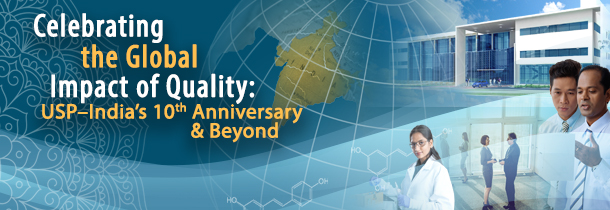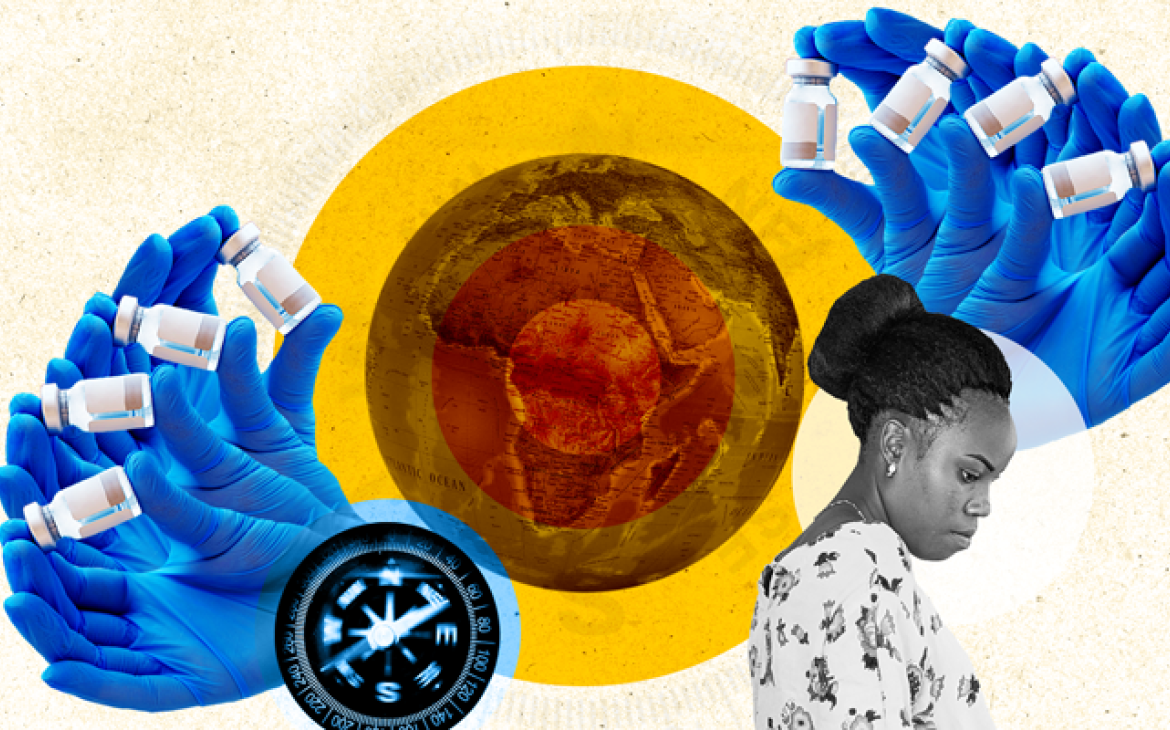
It was a special honor for me to attend the recent celebration marking USP–India’s 10-year anniversary. Having joined USP in September 2015, this was my first trip to India and to our facility in Hyderabad. I was both motivated and inspired by the warm welcome I received and the spirit of eagerness and entrepreneurship that surrounded me.
During my visit, I gained valuable insight into how important USP–India is…not only to the USP family but also to India and the global community.
Evolving from a Multinational to a Global Organization
USP–India was our first laboratory site outside of the U.S. What began with seven employees a decade ago has grown into a 100,000 sq. ft. state-of-the-art laboratory and office facility fueled by the energy and expertise of more than 170 staff members.
The work and pilot programs started at USP–India also have expanded. While the quality of chemical medicines is still a priority, staff in Hyderabad are now integral parts of USP’s overall testing, biologics and dietary supplements functions.
We now have global roles—scientific, quality assurance, stakeholder engagement and government affairs, strategic marketing and human relations professionals based in India and other locations such as China, Brazil, Africa, Europe and the U.S.—that are connecting, thinking, and acting as one entity to strengthen our work and its impact around the world. In doing so, USP is evolving from operating as a multinational to a global organization.
Being an International Convener and Collaborator
A focal point of the anniversary celebration was a panel discussion on “The Value and Contribution of Indian Pharmaceuticals to Global Public Health.” The event brought together national and global experts who discussed the Indian pharmaceutical industry’s journey over the years as well as future challenges.
In addition to fostering productive discussion on this critical topic, the panel highlighted the important role that USP, as an independent non-governmental organization, can play as a convener of government, academia and industry.
Over the past decade, USP has been able to forge partnerships to help improve the quality of medicines manufactured in India. Our work there has also driven growth in the Indian pharmaceutical industry and has fostered innovation in the region. In addition, through USP’s existing global health programs and our USAID-funded partnership Promoting the Quality of Medicines, USP–India has been helping to ensure that medicines manufactured in India are available to markets in developing countries worldwide.
At the event, we announced a new collaborative effort with India’s National Institute of Pharmaceutical Education and Research (NIPER). USP and NIPER are investing in new ways to educate and inspire the next generation of scientists with a focus on quality and the global marketplace. I also had the opportunity to join USP’s Dr. Koduru Surendra Nath and Sireesha Yadlapali (our new Director, Marketing and External Affairs, USP–India) in a meeting with Joint Secretary K.L. Sharma of India’s Ministry of Health. Our discussion focused on USP’s long-term strategy to help train and build sustainable quality assurance capacity in the region.
Next Steps: Expanding Engagement and Impact
What’s next? Progress in India and in other regions has helped lay the foundation for expanding USP’s presence across the broader quality ecosystem. We’re exploring new stakeholder outreach and research efforts focused on engaging international thought leaders, policymakers, academia, and non-governmental organizations to better understand regional needs and available collaborative opportunities. Our goal is to raise awareness of the impact of medicines quality on patients, public health and health systems and to advocate for policy solutions that improve quality. We see this work as an impact multiplier that could significantly increase the impact of science-based public standards in countries where their adoption is most needed.
As noted earlier, our independent status affords us the advantageous/unique position to operate and work with different types of partners in the global public health space. By leveraging existing relationships and forming new ones, we want to bring together new ideas, create consensus, and promote action that improves and sustains the quality of medicines, dietary supplements and foods around the world.
In India and beyond, our goal is not to just provide resources to help local and regional stakeholders “meet the bar” of quality; we’re aiming to work alongside them to “raise the bar” and increase impact.


